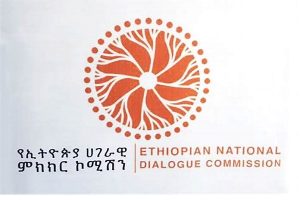East African countries face an uncountable number of conflicts and challenges that threaten regional stability and development. Significant portions of East Africa‘s zone conflict and instability are focused near border areas, pose a major risk of spillover, and feature powerful cross-border drivers, interests, and actors.
The causes of conflict over Tran’s boundary resources in the region are multifaceted. For instance, as populations grow and economies develop, water and arable land demand intensifies, exacerbating tensions among countries that rely on the same resources. Furthermore, varying levels of governance and institutional capacity can lead to unequal access and exploitation, fueling resentment and conflict.
In recent years, regional governments have made a much greater effort to police their borders, and their renewed commitment to address trans-border conflict issues constitutes an important window of opportunity. However, few regional states have the capacity to effectively administer their remote, expansive border areas.
Addressing these challenges requires a collaborative and integrated approach to resource management among the neighboring countries of the region. These collaborative approaches are essential, predominantly through the implementation of a win-win strategy. It not only seeks to address the immediate issues but also fosters long-term cooperation among neighboring nations.
Some significant areas where collaboration can be favorable are in the sharing of resources, particularly access to ports. For instance, countries like Ethiopia and Uganda, which are landlocked, rely heavily on their neighbors for maritime access.
By fostering the win-win agreements that allow Ethiopia, Uganda, and other land-locking countries to use ports in countries such as Eritrea or Kenya, all parties can benefit. These agreements not only enhance trade opportunities for landlocked nations but also increase port revenues for coastal countries, creating a mutually beneficial scenario.
Additionally, effective dialogue and cooperation among the regional nations are essential to developing equitable agreements that recognize the rights and needs of all stakeholders. By fostering regional partnerships and implementing sustainable practices, countries can mitigate conflicts and promote shared prosperity.
In this sense, Ethiopia’s pursuit of access to seaport facilities is a vital aspect of its national interests, a strategy that is intricately linked to the country’s broader goals for regional stability and economic development. Ethiopia continues to advocate for diversified trade routes and enhanced regional ties, it reinforces its role as a stabilizing force in the Horn of Africa, committed to a future where collective success is prioritized. It not only serves Ethiopia’s national interests but also contributes to a more peaceful and prosperous region, emphasizing the importance of collaboration in addressing shared challenges.
In a recent interview with the Ethiopian Press Agency (EPA), Ambassador Dina Mufti, who is a member of the House of People’s Representative Foreign Relations and Peace Affairs Standing Committee, emphasized that Ethiopia’s approach to seaport access is not merely a matter of logistics but is rooted in a “win-win” approach that benefits both Ethiopia and its neighboring nations.
At the heart of Ethiopia’s quest for alternative seaport access is its rapidly growing economy, which has led to increased demands for trade. Historically, Ethiopia has been reliant on Djibouti for its maritime trade, a dependency that has become increasingly unsustainable as the nation’s economic ambitions expand.
Ambassador Dina noted that diversification of trade routes are essential, given Ethiopia’s economic growth path. The interconnectedness of Ethiopia with other countries in the Horn of Africa (HoA) in terms of economics, culture, and politics demands a reevaluation of its trade strategies to ensure sustainable development.
The ambassador pointed out that the destinies of the nations within the HoA are closely linked. As such, Ethiopia’s pursuit of additional seaport options aligns with its national interests while also fostering mutual benefits for its neighbors. This approach is indicative of Ethiopia’s broader foreign policy framework, which prioritizes peace, cooperation, and regional integration, he said. The idea is that by enhancing its own economic capabilities through diversified trade routes, Ethiopia can contribute to a more stable and prosperous region.
Ambassador Dina further elaborated on Ethiopia’s significant contributions to regional peace and stability, highlighting the country’s leadership role in several key initiatives. For instance, Ethiopia played a pivotal part in the establishment of the Intergovernmental Authority on Development (IGAD), a regional organization focused on promoting peace and development in the HoA.
The commitment to regional harmony is crucial, as Ethiopia has consistently engaged in peace-building efforts, demonstrating its understanding that economic growth cannot occur in a vacuum, but must occur in a stable and peaceful environment.
Additionally, the ambassador underscored Ethiopia’s ongoing support for Somalia, viewing the stability of its neighbor as intrinsically linked to its own national security. “Somalia’s peace is Ethiopia’s peace too,” he stated, reinforcing the idea that peace is a collective endeavor requiring collaboration among nations.
The approach is reflected in Ethiopia’s active participation in peacekeeping missions across the African continent, including operations in Congo, Liberia, Burundi, Rwanda, and Somalia. Through these efforts, Ethiopia has reaffirmed its commitment not only to regional but also to continental stability, positioning itself as a leader in peacekeeping and conflict resolution.
In light of recent discussions regarding Ethiopia’s exclusion from certain peacekeeping missions, Dina echoed the country’s unwavering contributions to international peace efforts. He emphasized that Ethiopia continues to play a vital role in peacekeeping, particularly in Somalia, where its involvement remains crucial. This ongoing engagement highlights Ethiopia’s dedication to stability in the HoA, which in turn supports its broader economic and diplomatic objectives.
Ethiopia’s strategic quest for seaport access is not simply about securing trade routes; it also reflects a vision for comprehensive growth that encompasses economic integration and regional cooperation. By prioritizing peace and stability, Ethiopia is positioning itself as a key player in enhancing prosperity not only for itself but also for its neighbors in the HoA and beyond.
The ambassador’s remarks underline a vital tenet of Ethiopia’s foreign policy: a commitment to unity and shared success among neighboring nations. Its focus on collective progress is particularly significant in a region often marred by conflict and instability. By advancing its interests in seaport access through a framework of regional collaboration, Ethiopia aims to foster an environment conducive to mutual growth. Particularly, it’s important in the situation of the HoA, where historical tensions and rivalries can complicate diplomatic efforts.
BY FIKADU BELAY
THE ETHIOPIAN HERALD SATURDAY 7 DECEMBER 2024




